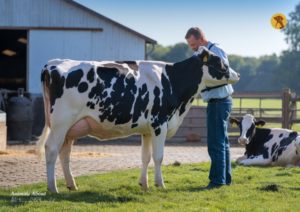If you’ve recently discovered your chicken laying soft-shelled eggs, you’re not alone. It’s a frequent concern among backyard poultry keepers, and it can seem shocking at first. Chicken soft-shelled eggs are fragile, rubbery, and easily broken, signaling that something isn’t quite right with your hen’s health or environment.
Every egg a hen lays reflects her internal health, her nutrition, and even her living conditions. Addressing chicken egg shell problems early is key to ensuring both happy hens and a productive backyard flock. Ignoring these issues can lead to more severe health concerns down the line.
Major Causes of Soft Eggs in Chickens You Shouldn’t Overlook
Understanding the causes of soft eggs in chickens helps you correct the issue before it worsens. One of the top causes is hen calcium deficiency. Hens require large amounts of calcium to produce hard, protective shells. Without it, the shells stay thin, weak, or completely soft.
Chicken dietary problems also contribute significantly. A poor diet lacking essential nutrients can weaken egg production quality over time. Additionally, stress factors — like sudden coop changes, predator threats, or extreme noise — affect egg laying. Chicken stress and egg laying are deeply connected, so maintaining a calm environment is critical.
Young hens often experience temporary glitches. It’s not unusual to see young hens laying soft eggs when they first begin laying. Their bodies are adjusting, and it typically resolves with time and proper nutrition.
Remember, soft eggs and chicken illness often go together. Respiratory diseases, reproductive tract infections, and even parasites can lead to poor egg quality in chickens.
Why Are My Hen’s Eggs Soft? The Hidden Factors Behind Thin-Shelled Eggs
As a chicken keeper, asking “Why are my hen’s eggs soft?” opens the door to deeper understanding. Poor nutrition tops the list. If your hens don’t get enough calcium, phosphorus, or Vitamin D3, egg production suffers. These nutrients are non-negotiable for strong, healthy eggs.
Thin-shelled eggs can also stem from dehydration. Without enough water, a hen’s entire reproductive process falters, leading to softer shells.
Moreover, chicken health and egg shells are linked in ways many people underestimate. A sick hen often shows early symptoms through her eggs. Pay attention if you notice other oddities like listlessness, puffed-up feathers, or watery droppings.
Healthy egg production demands a healthy body. Always think beyond just the shell when diagnosing egg problems.
Chicken Egg Shell Problems: Warning Signs That Need Quick Action
A hen that lays soft-shelled eggs today may show more serious symptoms tomorrow. Stay alert for signs of sick laying hens like decreased appetite, drooping combs, weight loss, or irregular laying patterns.
Environmental stressors can trigger egg laying issues in chickens. Changes such as relocating the coop, new flock introductions, or loud construction nearby can startle your hens into producing soft eggs.
Other egg production issues in poultry could include sudden seasonal changes, especially the transition from summer to fall when daylight hours shorten dramatically.
Addressing these signs early not only saves the current laying cycle but often saves the hen’s life.
How to Fix Soft Egg Shell Problems in Chickens and Restore Egg Strength
The good news? You can often fix soft-shelled egg issues with some simple but important changes. First, overhaul their diet. Ensure your hens are getting a premium layer feed packed with the right balance of proteins, minerals, and especially calcium.
Adding calcium supplements for chickens, such as crushed oyster shells, can make a world of difference. These should be offered free-choice in a separate feeder, so hens can consume what they need.
Vitamin D3 supplementation is just as crucial because it helps the body absorb calcium efficiently. Make sure your flock gets enough natural sunlight or safe UVB lighting to boost their D3 levels.
Managing stress plays a huge part, too. Limit disturbances around the coop, provide ample space per bird, and keep predator threats minimal. These steps will improve both their overall health and egg strength.
When improvements in chicken nutrition and egg strength don’t resolve the issue within a few weeks, it’s time to consult a veterinarian. Some problems stem from deeper health issues that need professional care.
Environmental Causes of Soft-Shelled Eggs and How to Solve Them
Your flock’s environment dramatically influences their health. Environmental causes of soft-shelled eggs include extreme temperatures, poor ventilation, and cramped conditions.
During hot summer months, hens are prone to heat stress, which can reduce calcium absorption. Provide shade, ample water, and good airflow to combat this.
During winter, sudden cold snaps can also stress birds, affecting their laying habits. Install insulation where necessary and keep the coop dry and draft-free.
Always maintain a clean, predator-safe, and peaceful environment. Healthier hens mean stronger, more resilient eggs, and fewer chicken egg shell problems to manage. For more tips on choosing the right animals for your homestead, check out our guide to the best farm animals.
FAQ
udden soft-shelled eggs usually happen due to hen calcium deficiency, stress, poor nutrition, or illness. It’s important to review your hen’s diet, living conditions, and health immediately to fix the issue.
Soft egg shells in backyard chickens are often caused by a lack of calcium, Vitamin D3, stress, or early-stage diseases. Poor quality feed, heat stress, and young hens starting to lay can also lead to thin-shelled eggs.
To fix soft eggs, provide a balanced diet with added calcium supplements for chickens, ensure access to sunlight for Vitamin D3, and reduce stress in the environment. Offering oyster shells and maintaining a clean, safe coop will improve egg shell strength.
Yes, young hens laying soft eggs can be normal when they first start laying. Their reproductive systems are still maturing. However, a proper diet and stress-free environment help them produce stronger eggs faster.
Disclaimer: This article is for informational purposes only. Always consult a veterinarian for professional advice. Published on animalsabout.org.







